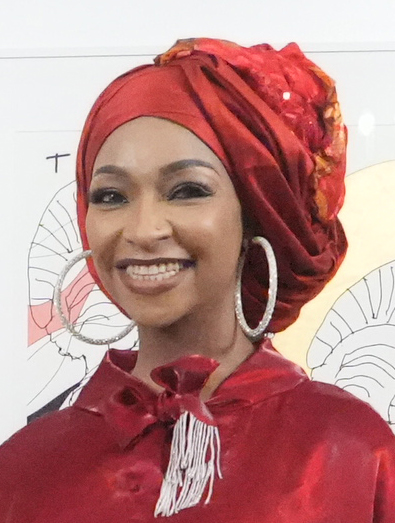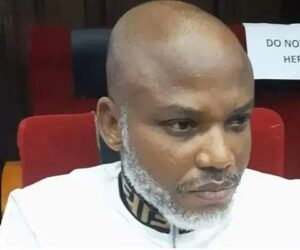The Federal Government has taken a bold step in uniting African fashion, culture and creative industries, with the announcement of the establishment of the Nigeria Fashion Federation.
The Nigeria Fashion Federation is a national coordinating platform that will collaborate with state governments and industry stakeholders to promote Nigerian fashion; in alignment with the Confederation of African Fashion’s continental framework.
Minister of Arts, Culture and Creative Economy, Barrister Hannatu Musa Musawa, made the announcement at a press conference in Abuja on Wednesday night, also embracing the Afroliganza Vision, a pan-African initiative, while highlighting the significance of the move for Nigeria and Africa.
The African Fashion Renaissance, known as Afroliganza Vision, seeks to build a value-driven fashion economy rooted in African heritage and guided by African institutions.
At its core is the Confederation of African Fashion (CAFA), a continental body designed to unite Africa’s diverse fashion industries under a single cooperative framework.
The organisation aims to grow Africa’s fashion economy from $30 billion to $500 billion, driven by structured investment, industrial development and creative enterprise.
According to Musawa, the adoption of Afroliganza Vision demonstrates Nigeria’s commitment to positioning culture, fashion and heritage at the center of its engagement with Africa and the global community.
She said Nigeria is not only adopting Afroliganza, but will also be the first country to sign the CAFA charter.
Musawa explained that CAFA will coordinate fashion diplomacy, trade integration and creative policy alignment across African nations.
The Minister noted that CAFA’s key objectives include linking national fashion federations, promoting intra-African trade and strengthening regional collaboration.
She also highlighted the importance of protecting African intellectual property, establishing continental standards for design and production and coordinating major events such as the African Global Fashion Games.
She said: “Nigeria is not only adopting Afroliganza; we are leading it. We are transforming commitment into action through institutions, policies and programmes that translate vision into measurable outcomes.
“CAFA is a continental body created to unite Africa’s diverse and fragmented fashion industries under one cooperative framework. As a ministry, we have pledged full institutional support for CAFA.
“To this end, we are formally establishing the Nigerian Fashion Federation, a national coordinating platform that will collaborate with state governments, industry stakeholders, youth collectives, and traditional institutions to promote Nigerian fashion in alignment with CAFA’s continental framework.”
Also speaking, Convener of the Confederation of African Fashion (CAFA) and President of the Lai Labode, Heritage Foundation, Balogun Lai Labode, PhD, expressed deep gratitude and purpose at Nigeria’s adoption of the Afroliganza Vision.
He said that Afroliganza has outlined a clear roadmap that connects inspiration to implementation, noting that the NFAF will serve as Nigeria’s official national body under CAFA, coordinating all fashion-related activities across the country.
Dr. Labode acknowledged the challenges facing Africa’s creative sector, including cultural fragmentation, lack of coordinated global strategy, weak cultural integration in trade and diplomacy, and inadequate creative infrastructure.
Despite these hurdles, he said the opportunities are immense for Africa’s creative sector.
“Today, Nigeria becomes the first African nation to sign the African Fashion Industry Growth Charter, and for that commitment, we are profoundly thankful,” he said.








